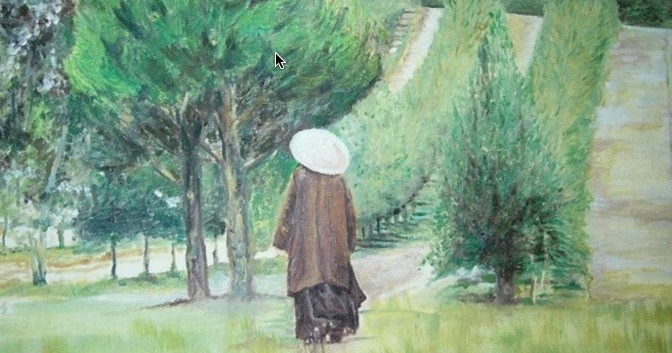As social innovators, a big part of our lives is spent trying to help others, but without looking after ourselves, and consciously developing our mindfulness and compassion, the way in which we practice empathy can wear us down.
I have always found a retreat a good way to realign, recharge, regroup and quiet down. This summer offered a new opportunity to spend some time at the monastery of Thich Nhat Hahn, one of the great social innovators and spiritual masters of our time. Forced into exile from Vietnam, he now lives in the Dordogne region of France.
The monastic schedule was rigorous, stretching from 5 in the morning to 10:30 at night and filled with hours of silence, study, and Dharma lessons in between. However, silence was punctuated by children’s laughter and monks playing soccer and climbing trees with the little ones. People of all ages attend the summer retreat, making it particularly special. Here I share with you a bit of what I brought back with me.
Stay in the present as much as possible
When we spend so much time in the past (longing for what once was or reliving painful experiences) or in the future (hoping for results we wish for or fearing what we want to avoid) it creates a turbulence in our mind which causes anxiety, worry, unrest. It also makes the only life we have – the one that happens in the present, go by without us having appreciated it. Noticing and following our breath and appreciating our every present moment gives us inner calm, clarity, perspective, well-being. We don’t have to sit in meditation for this (although that can be very helpful). As we eat, we can be present with our meal. We can reflect of all the conditions of the land, water air, farming, harvesting, selling, transporting, cooking and serving that made our meal possible. We can slow down to savor the food and appreciate the pleasure and nutrition it brings us. We can be mindful of the present as we walk, work, respond to emails, cook, wash the dishes. Everything we do can be an opportunity for us to practice being in the present.
Avoid rushing
Rushing is the default rhythm of our time. Too much to do. So little time. We are often is a rush. Rushing makes us miss the present. By slowing down, we feel better and actually end up accomplishing more.
Just as anger arises it will subside
As soon as you feel anger rising, you can avoid the damage it can cause by committing to not speaking until it subsides. You might focus on your breath. If that does not calm the anger, you can get up and go for a walk for 3 minutes, 30 minutes, 1 hour, as long as it takes for the anger to pass. It will subside. As you are walking you might notice the inbreath – step, step, step and then the outbreath – step, step, step. When we let the anger dissolve, we can regain the perspective and express ourselves more calmly and effectively.
We are a continuation of our ancestors
Our genetic ancestors, our land ancestors, our cultural ancestors, our spiritual ancestors, our life ancestors all live on in us. They are alive in every cell of our body. As we remember them, we feel very much accompanied on our journey through this life and we realize that one of our most important roles is as a future ancestor.
Understanding is loving
The more we understand someone, the more we love them. In order to understand someone, we can practice deep listening, offering space for their perspective to be expressed freely and completely.
We are the waves and we are the ocean
Sometimes in our turbulent mind it appears as if we were each separate and independent waves in the ocean. We are waves. But we are also the same ocean. A wave is not created or destroyed. It arises from the right conditions without ever being separate from the ocean.
Pain is inevitable, suffering is optional
By reenacting painful experiences in our minds over and over again we fuel suffering, extending the pain beyond its actual impact. By quieting down and developing our focus, we can gain the insight that will help us shift our perspective and ultimately reduce this suffering.

